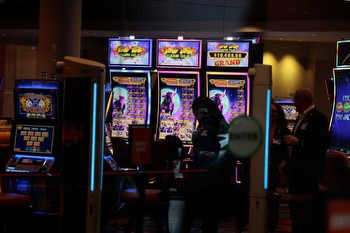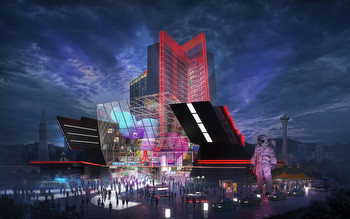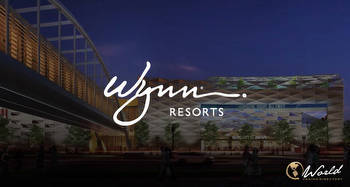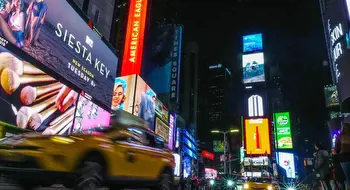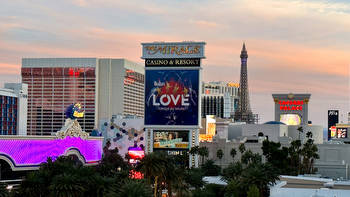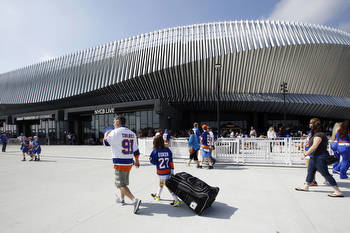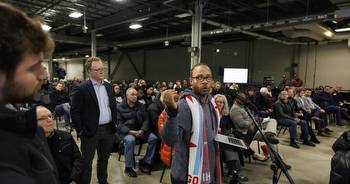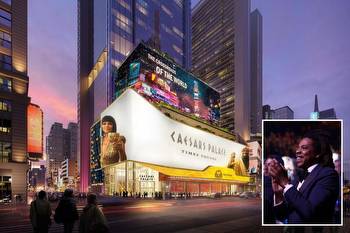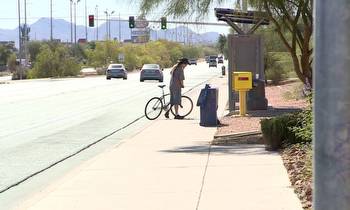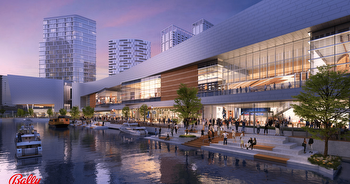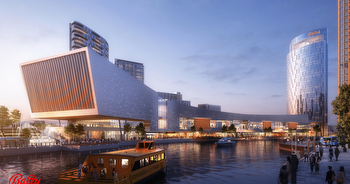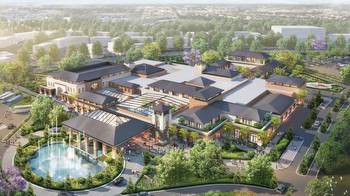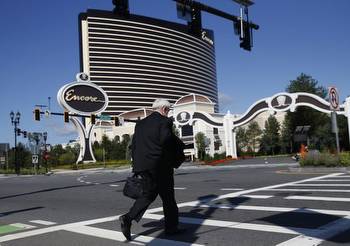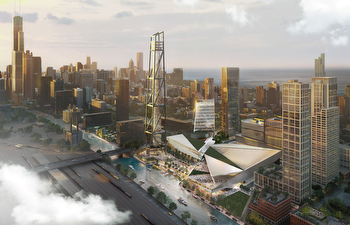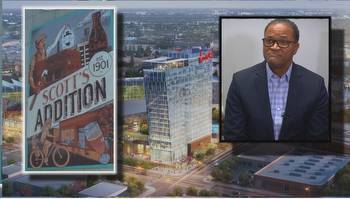Wynn eyes expansion of Everett casino
Wynn Resorts’ newest vision for the company’s land across Broadway from its Encore Boston Harbor casino in Everett includes two hotels with ballrooms, three parking garages, a theater, restaurants, clubs — 1.8 million square feet of development in all.
Most notably, the latest plans also call for gambling, in the form of a poker room and sports-book facility. But for that to materialize, Wynn needs the Massachusetts Gaming Commission to go along.
The 13-acre area largely consists of parking lots today. But that could soon change.
Wynn has made headway in local permitting with the project’s first phase: Everett’s planning board approved a site planlast week, and the city council could vote Monday on a required zoning change to allow gambling to take place there. This first phase includes a 2,100-space parking garage, a sports bar, a poker room, a nightclub that can fit nearly 1,000 people, a roof-deck “day club,” a 980-seat theater, and a 200-seat comedy club. The block would be connected to the main casino via a pedestrian bridge over Broadway (Route 99). The gaming commission awarded Wynn the state’s first sports betting license last week; Wynn plans to offer sports bets in the casino and eventually, if the gaming commission agrees, in the new building as well.
Big Night Entertainment Group will run most of the operations in thenew building, excluding the poker and sports betting. Big Night plans to relocate its Memoire nightclub from the casino to the club space in the new building — in part to make way for the overhead passageway and to take advantage of the larger venue, newer technology, and outdoor decks.
Big Night partner Ed Kane said he’s been impressed with the creativity that Wynn and Elkus Manfredi Architects have shown in designing the new building.
“Whatever way of Broadway you approach it from, you’re not going to miss this building,” Kane said. “It’s going to be a statement piece. ... The design is fantastic.”
Wynn general counsel Jacqui Krum told the gaming commission last month that about 800 people will be employed at the block’s various venues. Of those,Kane expects about 500 people, mostly hourly employees, will work for Big Night.
The next phase, according to plans filed with state environmental regulators on Nov. 15, includes the two hotels, one with nearly 500 rooms and the other with more than 300. Each building will feature ballrooms and some restaurant and retail areas, as well as garages with at least 450 spaces. The final block will consist of a two-story building with restaurants and shops.
Matt Lattanzi, Everett’s planning director, said he estimates the first phase would generate $3.6 million a year in new property taxes (or payments in lieu of taxes, depending on the eventual legal structure). He said the second phase, with the hotels, would bring another $10.8 million a year in revenue to the city, on top of roughly $3 million in lodging taxes.
Wynn had initially insisted that there would be no gambling on that side of Broadway, during its early planning for the block.
The company first proposed an 1,800-seat events venue there. Rival theater operators were worried about the competition, and pointed to a provision in the state’s gaming law that bans event venues with 1,000 to 3,500 seats from being built on casino properties. Wynn eventually scaled back the size of the theater to 980 seats, even though the company at the time had argued the land across the street shouldn’t be considered part of the casino.
Now, Wynn finds itself arguing to the commission that the new buildingshould be regulated as part of the casino after all. Representatives for Wynn and for the City of Everett said the possibility of an expansion of gambling is in keeping with the intent of the voters’ approval of the casino in a 2013 referendum.
Commission members started to discuss last month whether the voters’ overwhelming support for a casino at the former Monsanto site, where the casino was built, should count as an endorsement for gambling across the street. No resolution was reached, so the discussion will likely spill into the new year. Wynn needs a positive vote from the commission to host any gambling, including the sports book and the poker room, across the street.
Theater operators, meanwhile, are staying vigilant amid this expansion. Bill Blumenreich, owner of the Wilbur Theatre in Boston, said he remains concerned even though Wynn reduced the theater size to just under the legal threshold.
“They’re blatantly trying to hurt other theaters,” Blumenreich said of Wynn. “It’s all about their bottom line.”
Wynn spokesman Michael Weaver said in an email that the company wishes to “provide a diverse variety of entertainment options for our visiting guests, which we believe will grow, not reduce, the demand for local entertainment.”
That sentiment was echoed by Everett Mayor Carlo DeMaria. The mayor added that Wynn’s plans conform to his efforts to make that part of the city a hospitality destination and to transition it away from gritty industrial uses that have long characterized the area.
“We always knew they were going to increase their footprint there,” DeMaria said of Wynn. “I’m pretty certain that the 86 percent of the residents who voted for the referendum and all those who didn’t vote would love to see them expand and hire more people and pay more taxes and create more aesthetically pleasing parcels. We all need to remember what that area looked like before they came and what they’ve done.”








